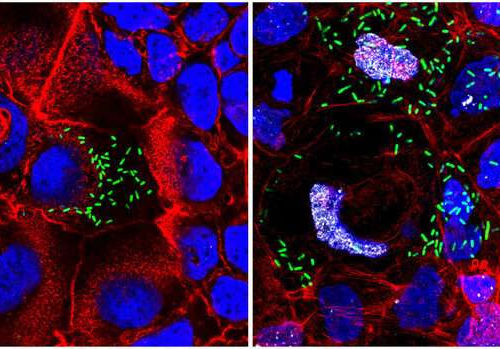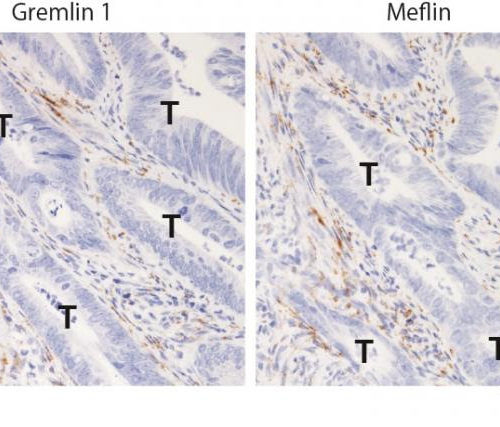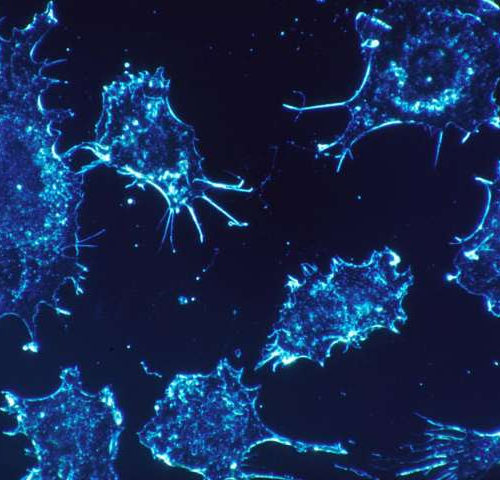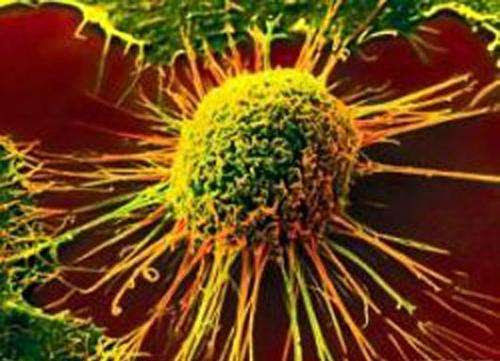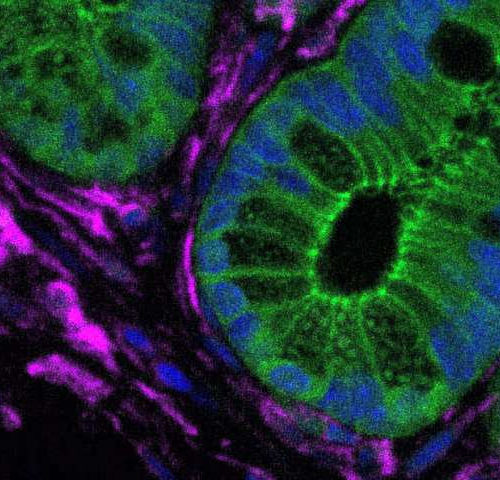by Max Planck Society Immunofluorescence staining shows that genotoxic colibactin-producing E. coli (green) cause DNA damage (indicated by the presence of the DNA repair protein γH2AX, white) and megalocytosis (abnormal enlargement of cells) (right). This is not observed for cells infected with a mutant E. coli strain (E. coli ΔclbR) that is defective for colibactin synthesis...
Tag: <span>Colorectal Cancer</span>
Study finds potential therapeutic targets to inhibit colorectal cancer progression
NAGOYA UNIVERSITY IMAGE: REPRESENTATIVE IMAGES OF HUMAN COLON CANCER TISSUE SHOWING THE LOCALIZATION OF GREMLIN 1-POSITIVE (LEFT) AND MEFLIN-POSITIVE (RIGHT) CANCER-ASSOCIATED FIBROBLASTS (CAFS) IN THE STROMA. BROWN DENOTES CAFS THAT ARE POSITIVE FOR GREMLIN 1 OR MEFLIN T.,TUMOR CELLS CREDIT: ATSUSHI ENOMOTO Nagoya University researchers and colleagues have revealed that colorectal cancer tissues contain at least two...
Coffee associated with improved survival in metastatic colorectal cancer patients
DANA-FARBER CANCER INSTITUTE BOSTON – In a large group of patients with metastatic colorectal cancer, consumption of a few cups of coffee a day was associated with longer survival and a lower risk of the cancer worsening, researchers at Dana-Farber Cancer Institute and other organizations report in a new study. The findings, based on data...
Antioxidant-rich foods like black tea, chocolate, and berries may increase risk for certain cancers, new study finds
by Hebrew University of Jerusalem It is a fact that has long baffled doctors: Cancer in the small intestine is quite rare, whereas colorectal cancer, a neighboring though much smaller organ, is one of the leading causes of cancer death for men and women. What is it about the colon that seems to attract cancer?...
Common hypertension medications may reduce colorectal cancer risk
Hypertension Journal Report AMERICAN HEART ASSOCIATION DALLAS, July 6, 2020 — Medications commonly prescribed to treat high blood pressure may also reduce patients’ colorectal cancer risk, according to new research published today in Hypertension, an American Heart Association journal. Angiotensin converting enzyme inhibitor (ACE-i) or angiotensin II receptor blocker (ARB) medications are prescribed for conditions...
Researchers find more precise way to target tumours with anti-cancer drugs
by Adrianna MacPherson, University of Alberta Researchers at the University of Alberta have found a way to deliver anti-cancer drugs with more precision, which could increase the effectiveness of many cancer treatments. U of A oncologist Frank Wuest altered the surface of nanoparticles, which are well suited to deliver drugs, with epidermal growth factor (EGF),...
Convenient spit test helps women assess cancer risk from the comfort of their own homes
First-of-its-kind clinical trial validates remote genetic counseling STAND UP TO CANCER STAND UP TO CANCER, OVARIAN CANCER RESEARCH ALLIANCE, NATIONAL OVARIAN CANCER COALITION LOGOS view more CREDIT: STAND UP TO CANCER, OVARIAN CANCER RESEARCH ALLIANCE, NATIONAL OVARIAN CANCER COALITION (New York) June 01, 2020 – Genetic testing for cancer risk can significantly improve the prevention...
Researchers uncover drivers of healthy gut maintenance
by The Francis Crick Institute Researchers at the Francis Crick Institute have found two genes that regulate the differentiation of stem cells in the small intestine, offering valuable insight into how the body develops and maintains a healthy gut. Cells in the lining of the small intestine are replaced around every five days, the quickest...
Early screening based on family history may have dramatic effects on colorectal cancer detection
by Wiley In an analysis that included information on adults diagnosed with colorectal cancer between 40 and 49 years of age, almost all patients could have been diagnosed earlier if they had been screened according to current family history-based screening guidelines. The findings are published early online in Cancer, a peer-reviewed journal of the American...
Suspect cells’ ‘neighbor’ implicated in colorectal cancer
by Bill Hathaway, Yale University Colorectal cancer kills more than 50,000 people a year in the United States alone, but scientists have struggled to find the exact mechanisms that trigger the growth of tumors in the intestine. Cancer researchers have zeroed in on a tightly sequestered group of stem cells within the intestine as suspects...

